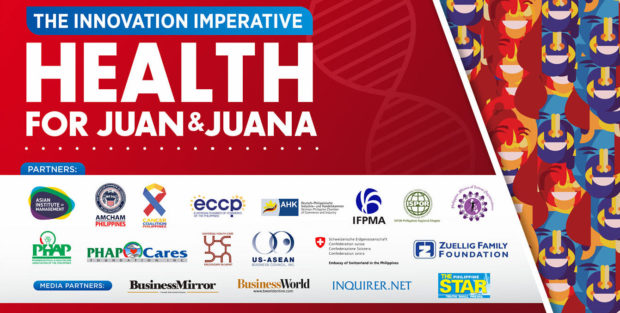The COVID-19 pandemic is a revelation of the status of global healthcare, with even first world countries questioning their capabilities to address such a large-scale demand for services and technology to cater to their people better and faster.
For developing countries like the Philippines, the challenges range from poverty, lack of access to basic healthcare, poor usage and allocation of resources in the health sector, and inequity.
On top of the coronavirus outbreak that has affected over 240,000 people in the country, there are other health issues such as cancer experienced by Filipinos every day. According to the World Health Organization’s International Agency for Research on Cancer, cancer-related death count reached almost 87,000 and prevalent cases were estimated at over 290,000 in 2018 alone.
These are strong reasons to rally national budget, government cooperation, and health industry collaboration to prioritize innovative healthcare that can help address many life-threatening diseases.

Former DOH Undersecretary of Health Madeleine De Rosas-Valera, MD, MScIH, one of the speakers in the recently concluded Health for Juan and Juana webinar forum, touched on national healthcare as an investment worth financing now. The talk highlighted the improvement of the standard of care towards patients with cancer and other life-threatening health conditions.
This pursuit of innovative health technology will pave the way for the furthering of the country’s current healthcare system, thus improving health outcomes such as quality of life and overall survival. These benefits can then extend to the patient’s family and caregivers.
A much-needed “arbiter”
When healthcare spending becomes prioritized within the proper interests, there will be a significant behavior change for patients and society at large, thanks to better, more cost-effective service delivery. To drive this, there is an intensive need for a Health Technology Assessment (HTA).
The WHO HTA is an evaluation process of how the advancement of tools and procedures of health interventions/technologies affect socio-economic, organizational, and ethical issues. This evaluation can help aid decision-making in the realm of healthcare policies.
In fact, the HTA is identified in the Universal Healthcare Law. It can then act as the agent that brings equilibrium between the government, the people, and the manufacturers of health technology. The process will determine which advancements for health should be of utmost priority, and how both the government and external partners arrive at an appropriate price.
An innovative technology in the realm of cancer care has been making waves in many countries worldwide, and has helped many a cancer warrior in their battle against this deadly disease. Called immunotherapy, this treatment aids the immune system to identify and target cancer cells; clinical studies have shown that long-term overall survival and benefits endure even after treatment, thus contributing to a better quality of life after cancer.
As health technologies such as these have been seen to add years to life and life to years of patients, making this treatment option accessible to every Juan and Juana would be a big leap in local healthcare. To aid healthcare leaders in assessing the health outcomes derived from immunotherapy as a treatment option — as stated in the Implementing Rules and Regulations of the National Integrated Cancer Control Act — a study called the Health Impact Projection Model or HIP Model was proposed to demonstrate the impact of funding immunotherapy in the National Integrated Cancer Care Act (NICCA).
Better, equal healthcare for everyone
Financial equity and equity of opportunity – these are the areas that will be addressed and prioritized should healthcare advancements be checked through the HTA’s lenses.
“If these innovative technologies go through an HTA process here in the Philippines, they will be available in government hospitals and indigents would be able to avail of them,” said Dr. Valera on the plausible integration of the HIP’s economic and survival modeling.
Through the HIP Model, it has been observed that health outcomes of cancer patients who undergo immunotherapy enjoy added life years, with a more cushioned impact on budget capacity.
Similarly, the less privileged and marginalized can have a leveled survival field with those who already have a physical and financial fighting chance.
Patients from all walks of life should be considered as the stakeholders in the HTA process. This way, it can be ascertained that the healthcare sector’s progress will benefit the people more than the system.
Aligned with the country’s development goals, the innovative health technologies the HTA process and HIP Model champion will address even underlying health issues before they prevail.
As a developing country, there is much work, preparation, assessment, and regulation underway to make this happen. It is in high hopes that the advocacy for innovative healthcare is properly prioritized to ease the burden of medical problems today and in the years to come.
ADVT.

